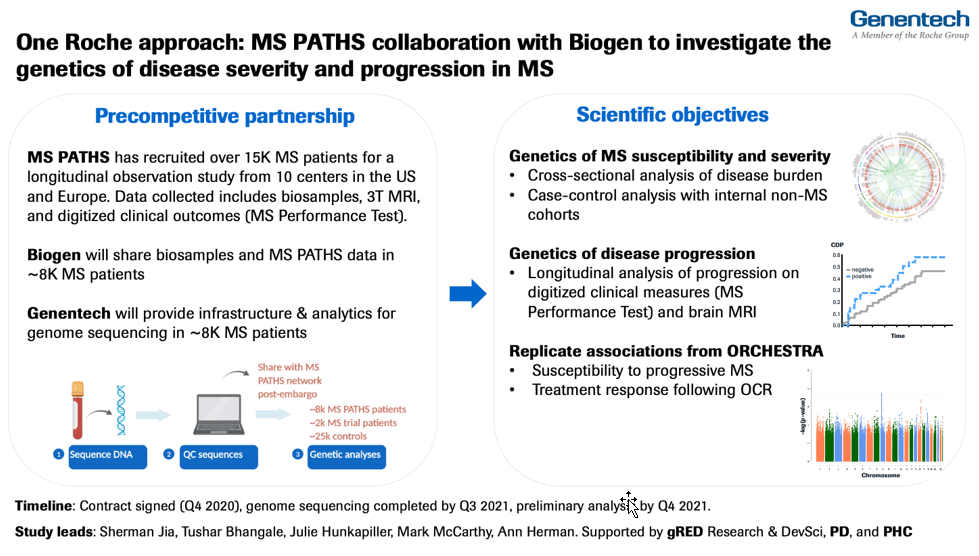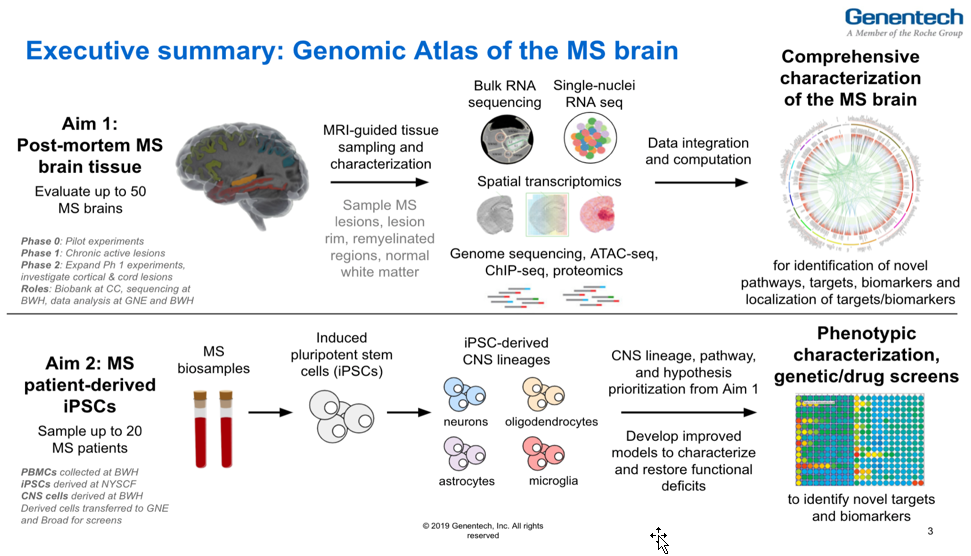
OMNI-BD has a number of collaborations with gRED Research to accelerate target and biomarker discovery in multiple sclerosis. Two ambitious, flagship projects include 1. MS PATHS, a collaboration with Biogen to investigate the genetics of progression in MS; and 2. MS Brain Atlas, a collaboration with Brigham and Women’s Hospital to comprehensively characterize post-mortem MS brains, and to create improved model systems using MS patient-derived induced pluripotent stem cells (iPSCs). Partnering functions include Research Human Genetics, Neuroscience, Translational Genomics, Neuropathology, Cellular & Tissue Genomics, Mol Dx Cncr Cell Bio, Bioinformatics, and US Medical Affairs.
Additional reverse translation activities in genetics and functional genomics from MS clinical trials include but are not limited to whole-genome sequencing in Ocrevus clinical trials (OPERA I & II, ORATORIO), single-cell RNA sequencing of blood and CSF in Ocrevus sub-studies, CSF soluble biomarker studies (OBOE), and mass-spec based proteomics in MS CSF. Generation and analysis of data from clinical trials are ongoing, and will further support target and biomarker discovery in MS and beyond.
MS PATHS is a pre-competitive collaboration with Biogen to unravel the genetics of disease progression in multiple sclerosis. This 5-year project started in 2020, and aims to genotype and whole-genome sequence 8,000 MS patients recruited at 10 centers in the US and EU. Study patients have digital outcome measures (MS Performance Test), a set of in-clinic iPad-based clinical outcome measures, 3T brain MRI, blood biomarkers (NfL), and patient-reported outcomes. Results from MS PATHS will be used to replicate initial findings from analysis of Ocrevus MS clinical trials, and will aid identification of novel targets and development of novel genetic biomarkers.

The MS Brain Atlas project (approved by RRC in Q1 2021) is a collaboration with Brigham and Women’s Hospital to 1. comprehensively characterize MS brains using multi-level omics, and 2. derive iPSCs from MS patients to facilitate genetic and chemical/drug screens. The project will directly support Research (target discovery), DevSci (biomarker development), and USMA (Cure MS initiative to stop and reverse MS) objectives. Moreover, this effort aligns with reverse translation initiatives in Translational Genomics, Neuroscience, and OMNI-BD. The 5-year project is supported by gRED Research / Mission Acceleration and USMA-Ocrevus. Insights generated from this study will shed light on the mechanisms of MS disease progression, including neuronal and glial pathways that contribute to chronic active lesions, remyelination, and neurorepair.
